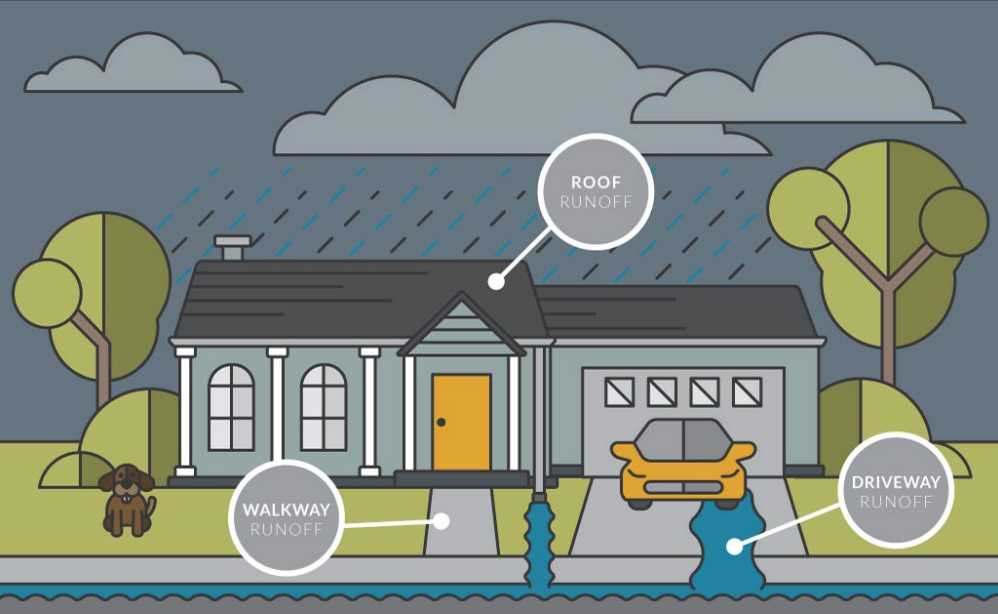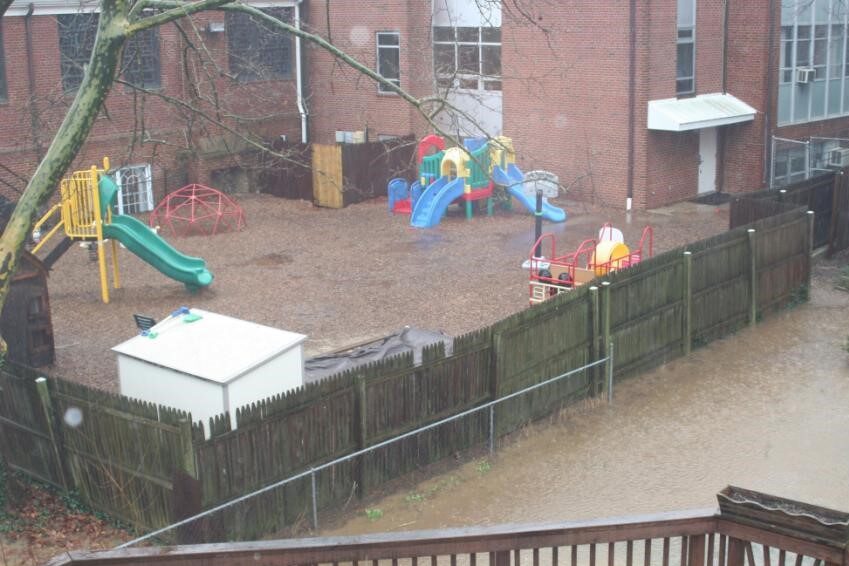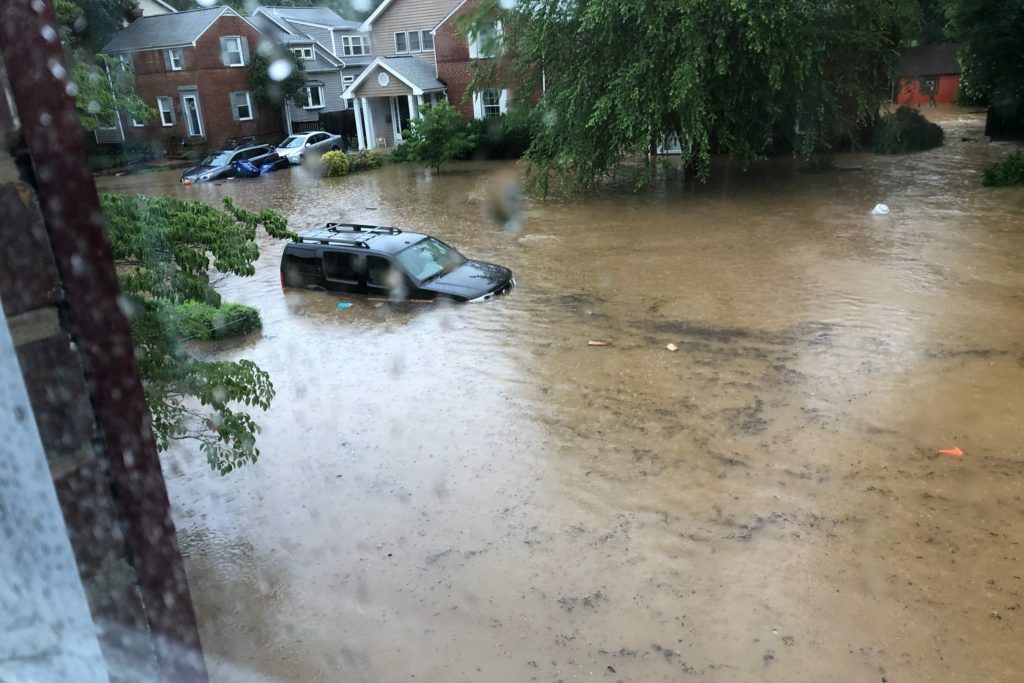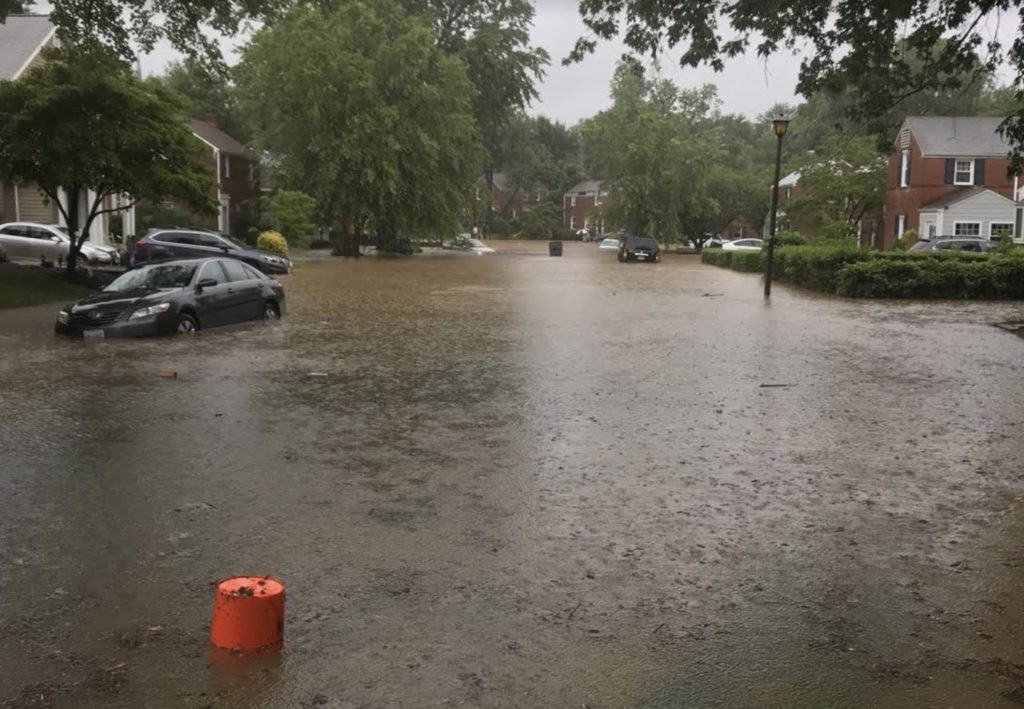Last week, residents may have received a postcard outlining a new tax they can expect next year: a stormwater utility fee.
Like electric, gas, or water utility bills, this fee effective Jan. 1, 2024, would charge properties a fee based on use of and impact on Arlington County’s stormwater system. The new fee will replace an existing sanitary district tax calculated based on property assessments.
Residents of properties with more hard surfaces that do not let rain soak into the ground — such as roofs and driveways — can expect to pay larger fees than those with fewer such surfaces. Property owners can receive credits for steps they take to reduce stormwater runoff.
Revenue from the fee will fund stormwater capital projects — to the tune of $331 million over the next decade. To mitigate flooding, Arlington is also buying properties in flood-prone areas, adding stormwater detention vaults and making small drainage improvements, among other projects.
“The County is making this change now because the rise in severe flooding in recent years requires us to increase investments in our stormwater system, and a utility is a fairer way to distribute the cost,” per the county website. “These investments will help maintain, upgrade, and scale our stormwater infrastructure to better protect Arlington from future severe rainstorms.”
The Arlington County Board approved the fee with the 2024 budget earlier this year. It comes on the heels of a 2020 study by a consultant that recommended the switch and further study by staff.
The new model is fairer, says Arlington County, because it found property assessments were “weakly correlated” to impervious surface and these impermeable areas are “a better estimate of usage of the stormwater assessment.”
Before, the sanitary tax amounted to $0.017 per $100 of assessed value, or $136 a year for a home assessed at $800,000. Now, single-family homes could see a similar starting point for the stormwater utility fee, of $138 for homes under 1,600 square feet, with fees increasing as square footage increases.
Apartment and condo dwellers could see a flat rate of around $45.
This fee is based on a unit of measure Arlington County devised, called an “Equivalent Residential Unit.” The county calculated this by finding the average impervious coverage for single-family detached properties, which is 2,400 square feet.
Currently, one ERU is roughly $230-250, according to the county, though the final rate for 2024 will be set this fall and annually thereafter. Property owners would be charged based on how many ERUs compose their property. They can estimate that fee using a tool the county created.
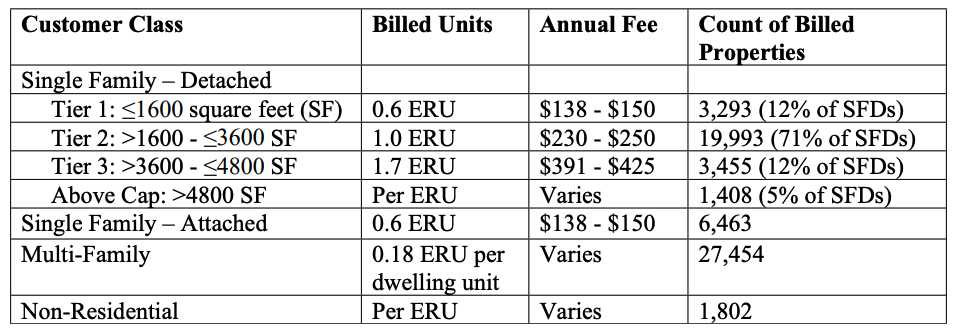
People looking for some relief can apply for a credit program that rewards voluntary actions such as adding rain gardens. From Nov. 1 through Jan. 15, all property owners can apply for voluntary credits to offset up to 35% of their bill, or about $80 per ERU.
“The credit program is not a bill assistance program, but rather a thank you to customers for doing the right thing for the environment,” the county website says.
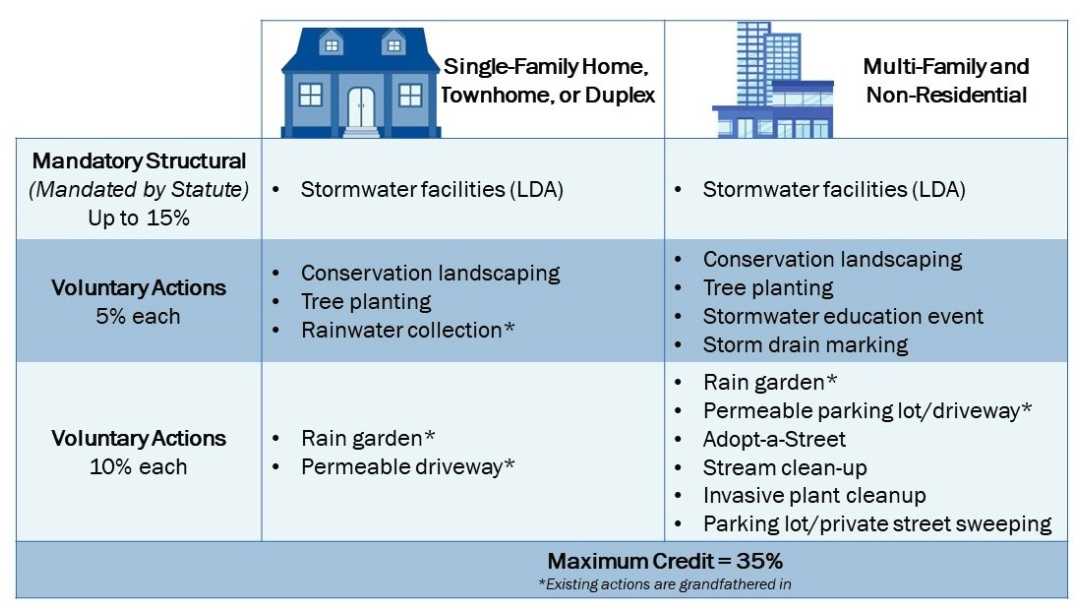
Those who added stormwater facilities mandated by statute will automatically receive credits. Some 1,900 properties in Arlington are already eligible for automatic credits, according to Tyler Ann Smith, a budget director for the project.
If credit applications jump up, that could squeeze participation or drive up the fee per ERU, she said in a presentation last year.
The county has budgeted for credits to amount to 1-2% of revenue from the stormwater fee, she said, and the 1,900 existing properties alone amount to roughly 1% of projected revenue.
“If the credit program is wildly successful — a lot of people apply and that reduces revenue county gets — we will have to increase the ERU for all properties,” Smith said at the time. “We have to balance our budget as well. It’s hard to tell what the uptick in the credit program will be.”
The presentation was one given to Arlington clergy last year, who had grim reactions to the proposed changes.
Houses of worship, federal properties and nonprofit and tax-exempt properties were exempt from the sanitary district tax and will not be exempt from the fee. One local Catholic Church could pay upwards of $22,000 per year, according to the county’s estimator tool.
At the time, clergy said the fee will make it harder to make ends meet. They reported leaner budgets, driven by lower attendance and higher inflation, which are being depleted faster because of increased demand for community services such as food pantries and free clothing “stores.”
“I can appreciate the fairness of wanting to share the fees across the county, and not give an exemption because we’re a religious institution,” said Rev. Dorota Wright-Pruski of St. Andrews Episcopal Church.
“On the flip side,” she said she hoped for “some fairness to those of us who are just struggling to do what we can for our communities and the broader community.”
Staff also held an open house on the changes and the Arlington County Board held hearings on it as part of the budget process. There were also presentations to the Arlington County Civic Federation, the Chamber of Commerce and nonprofits.


